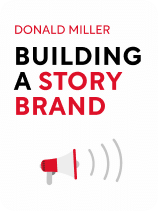

This article is an excerpt from the Shortform book guide to "Building a Storybrand" by Donald Miller. Shortform has the world's best summaries and analyses of books you should be reading.
Like this article? Sign up for a free trial here .
What is email lead generation? How can you generate email leads for your marketing campaigns?
Email lead generation is an important part of any marketing campaign, specifically, email campaigns. You’ll need a set system for generating leads and know how to use them. Why
Read more about email lead generation.
Create Email Lists With Email Lead Generation
A lead generator is something that interests customers in your brand and encourages them to interact with you. In this step (which is one of the most important in the book), you’re specifically using your lead generator to collect email addresses. Email is the most effective way to share information about your brand. For example, the author has hundreds of thousands of connections on social media, but even combined, they can’t compete with email.
Email marketing is also economical—you don’t need a huge budget to make use of it.
Create Your Lead Generator
Lead generators need to do at least one of the following:
- Give your customers something valuable (not a newsletter, no one wants those)
- Demonstrate your authoritativeness in the industry
Here are five suggestions for possible email lead generation, all of which can also be used as transitional calls to action. For all of them, the potential customer exchanges their email address for access to:
- Downloadable guides. A downloadable guide should teach your customers about your field. PDF guides are economical and easy, and should be around three pages long.
- (Shortform example: If you sell tomato plants, you might give out a guide about how to choose appropriate soil for your garden.)
- Web series or online videos. Videos are more involved than downloadable guides, but they do a great job demonstrating your expertise in the field.
- (Shortform example: if you’re a plumber, release a video that shows how to clean a drain.)
- Free trials or demos. There’s no risk for the customer in a free trial—they can test something before they have to pay for it. If they enjoy it during the test, they might buy it.
- (Shortform example: Adobe Creative Suite offers a free week-long trial of their software.)
- Free samples. Like free trials, free samples give the customer a risk-free way to learn more about a product.
- For example, Blue Apron gives existing customers coupons to give to their friends. The coupons entitle people to free samples.
- Free events. Free events attract people to your place of business where they’re introduced to your products and services.
- For example, some pet stores offer free dog training classes.
If you’re feeling overwhelmed by the possibilities, start with a PDF guide because it’s the easiest. If you need help creating it, you can hire a writer or designer.
Title Your Email Lead Generation
Lead generators are more enticing when they have good titles. Consider some of the following:
- “Common Mistakes People Make With [problem you can help them solve]”
- (Shortform example: A realtor might release a guide called “7 Mistakes People Make When Buying Their First Home.”)
- “The Most Important Things You Can Do With [product].”
- (Shortform example: A web designer might title a video called “The 4 Most Important Things You Can Do to Increase the Effectiveness of Your Website.”)
- “Learn to Make [something related to your product] Once a [time period].”
- (Shortform example: A craft store might host a crochet class once a month called: “Learn to Crochet a New Doily Once Every Thirty Days.”)
- “Become a [aspirational identity]”
- (Shortform example: A tutoring company might title a free trial of their educational software: “Become an Honor Roll Student.”)
Use Your Lead Generator
You should display your email lead generation tool on your website. The author recommends that you offer it in a pop-up that displays after ten seconds of landing on the site. Though everyone says they hate pop-ups, according to stats, they’re a very effective form of marketing.
How Much Is Too Much?
You might worry about giving out so much valuable content for free, which goes against the marketing adage, give away the why (inform the customer why they need to know about a problem) and sell the how (your product which solves the problem). However, the author encourages you to be generous and writes that he’s never lost money from doing so. Customers look at your free content while they’re in the midst of other things, and when they’re ready to sit down and learn it properly, they’ll be willing to pay.
How Many Email Addresses Do I Need to Collect?
Depending on the size of your company, you’ll need differing amounts of email addresses through email lead generation before you move on to the next step. A big business might need hundreds of thousands that they then divide into categories based on demographics. If your business makes less than $5 million, then you probably only need to collect 250 email addresses to get results. (Note that email addresses need to belong to qualified customers—customers who have the potential to buy from you.)

———End of Preview———
Like what you just read? Read the rest of the world's best book summary and analysis of Donald Miller's "Building a Storybrand" at Shortform .
Here's what you'll find in our full Building a Storybrand summary :
- How storytelling enhances brand marketing
- Why you should make the consumer the hero of your brand's story
- The 7 elements that make marketing work






